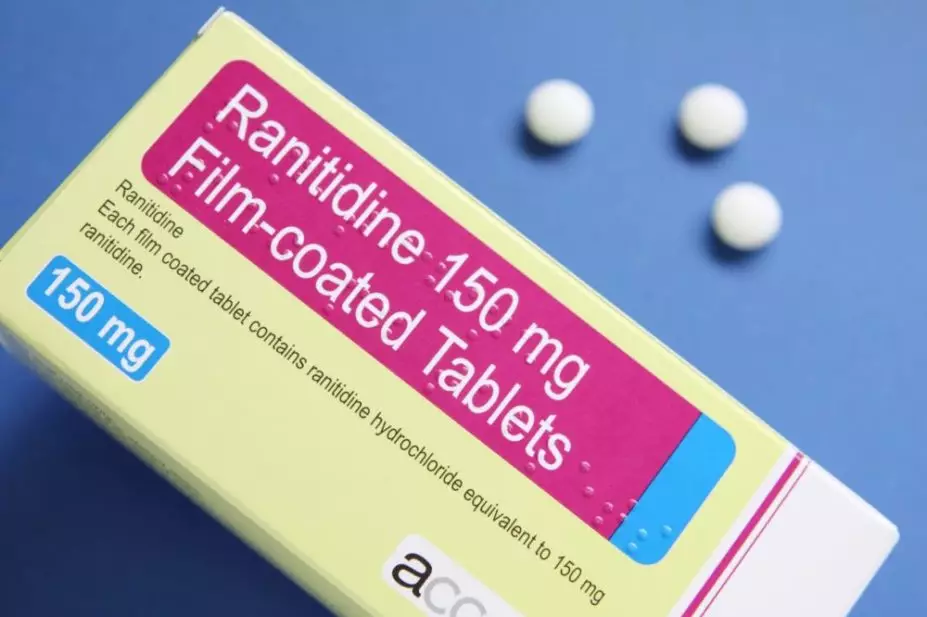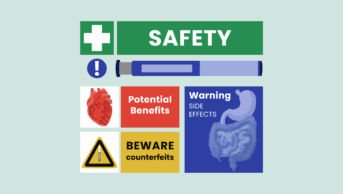
Alamy
UK-based pharmaceutical company Accord Healthcare is assessing whether it can bring back a supply of the gastrointestinal drug ranitidine, after the first manufacturer of the active ingredient had its ‘certificate of suitability’ restored.
A spokesperson from Accord Healthcare confirmed to The Pharmaceutical Journal in September 2021 that it is “reviewing the potential suitability of the active pharmaceutical ingredient (API)”.
In September 2019, N-nitrosodimethylamine (NDMA) — a probable human carcinogen — was found to be present in unacceptable concentrations in batches of ranitidine, which led to product recalls that started in October 2019.
Ranitidine medicines, which belong to a class of medicines known as H2-receptor antagonists, are used to reduce the production of stomach acid in patients with conditions such as heartburn and stomach ulcers.
In November 2020, all licences for ranitidine medicines were suspended by the European Commission (EC) and the Medicines and Healthcare products Regulatory Agency (MHRA).
On 2 July 2021, Solara Active Pharma Sciences — which is based in Bangalore, India, and supplies ranitidine API to Accord Healthcare — announced that it had submitted data that show it has mitigated the risks of the formation of NDMA during the manufacturing of ranitidine API.
Solara said it was granted a revised certificate by the European Directorate for the Quality of Medicines and Healthcare on 1 July 2021. The revised certification validates the quality of the API by proving that it complies with the rules laid down in the monograph of the European Pharmacopoeia, and is the preferred option for demonstrating compliance when seeking market approval of the final product.
When asked about whether it was considering restarting ranitidine supply, a spokesperson from Accord Healthcare said: “Accord’s current focus is to identify a suitable API source and then to proceed with further drug product studies, assessing the manufacturing process and subsequent stability studies.
“Ultimately, approval from the competent authorities will be required before the resupply of any ranitidine-containing medicines.”
However, when approached by The Pharmaceutical Journal, both GSK and Sanofi — which manufacture ranitidine brand Zantac for the UK and US markets, respectively — said they have no plans to bring the product back.
Teva, a large generic manufacturer of ranitidine, also confirmed that it has no plans to bring the product back to the market.
Experts are sceptical about whether manufacturers can completely eliminate the risk of NDMA contamination.
Michael White, professor of pharmacy practice at the University of Connecticut, explained there is an instability within the drug molecule itself that can result in NDMA formation during storage of ranitidine, or possibly after ingestion: “If you can solve the API issue, then that means that when the product comes it starts out with less NDMA.
“But it’ll still likely be generated as the product breaks down. If you can get [NDMA] down to zero, maybe you could have a shelf life that would be long enough to make it a viable option,” he said.
The EC has specified a list of conditions that need to be met for the suspension of ranitidine to be lifted, including implementing a control strategy regarding NDMA for ranitidine-containing products, submitting quantitative data on endogenous formation of NDMA from ranitidine in humans, and demonstrating compliance with a maximum level of NDMA up to the end of the product’s shelf life.
A spokesperson for the MHRA said: “In order to reinstate the marketing authorisation of ranitidine products, the marketing authorisation holders will need to submit relevant information, including endogenous formation of NDMA, as set out in the EC requirements.”
No plans to recall second H2-receptor antagonist
Some batches of the gastrointestinal drug nizatidine, which has a similar chemical structure to ranitidine, have been voluntarily recalled in the United States and Canada because they might contain unacceptable levels of N-nitrosodimethylamine (NDMA).
A spokesperson for the Medicines and Healthcare products Regulatory Agency said the regulator is aware of the recalls carried out in the United States and Canada in relation to nizatidine products, but added: “At this stage, we have not received any information via the company or our own investigations that indicate a recall is required for nizatidine products in the UK.”
They continued: “All marketing authorisation holders have been asked to review all human medicines for the possible presence of nitrosamines and test products at risk, and therefore nizatidine products have been considered in this review.
“The MHRA have continued to work with companies to ensure they have appropriate control strategies to prevent or limit the presence of these impurities and, where necessary, to improve their manufacturing processes.”
2 comments
You must be logged in to post a comment.



Why can’t they bring ranitidine back without the cancer
Causing agent.? Famotidine which took its place is no where near as effective as ranitidine. Please bring back ranitidine it’s a brilliant antacid.
"there is an instability within the drug molecule itself that can result in NDMA formation during storage of ranitidine, or possibly after ingestion"
Until this issue can be resolved, ranitidine is history.